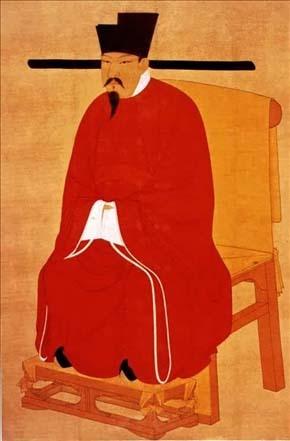Wang Anshi, courtesy name Jiefu, literary name Banshan (born 1021, Linchuan, Jiangsu Province, died 1086, Jiangning, Jiangsu), was a Chinese poet and government reformer of the Song Dynasty.
王安石,字介甫,号半山,1021年生于江苏临川,1086年卒于江苏江宁,中国诗人、宋朝政府改革家。
His “New Policies" of 1069~1076 sparked academic controversy that continued for centuries.
王安石施行的“新政”(1069年至1076年)引发了延续几个世纪的理论论争。

He created a fund for agricultural loans to farmers to spare them the exorbitant demands of moneylenders; he also replaced corvée labour with a hired-service system financed by a graduated tax levied on all families.
王安石创立了贷给农民的贷款基金,从而使农民不必再借高利贷;王安石还停止了劳役,建立了靠从所有的家庭征收的累进税提供资金的有偿服务体系。
He enabled officials to purchase supplies at the cheapest price in the most convenient market.
王安石使得官员们能在最方便的市场上买到最廉价的供应品。
He established a village militia system, reorganized the Hanlin Academy, and restructured the civil service examinations.
王安石建立了民兵制度,改造了翰林院,调整了科举考试。
Wang's reforms were unpopular, and he was forced to resign in 1074.
王安石的改革是不受欢迎的,1074年王安石被迫辞职。
He returned to government in 1075, but with less political power.
1075年王安石被重新启用,但是权力不及原来。
After the emperor's death an antireform clique came to power and dismantled Wang's reforms by the time of his death shortly afterward.
皇帝驾崩后反改革派上台,到不久王安石去世的时候,反政革派废除了王安石的改革措施。













